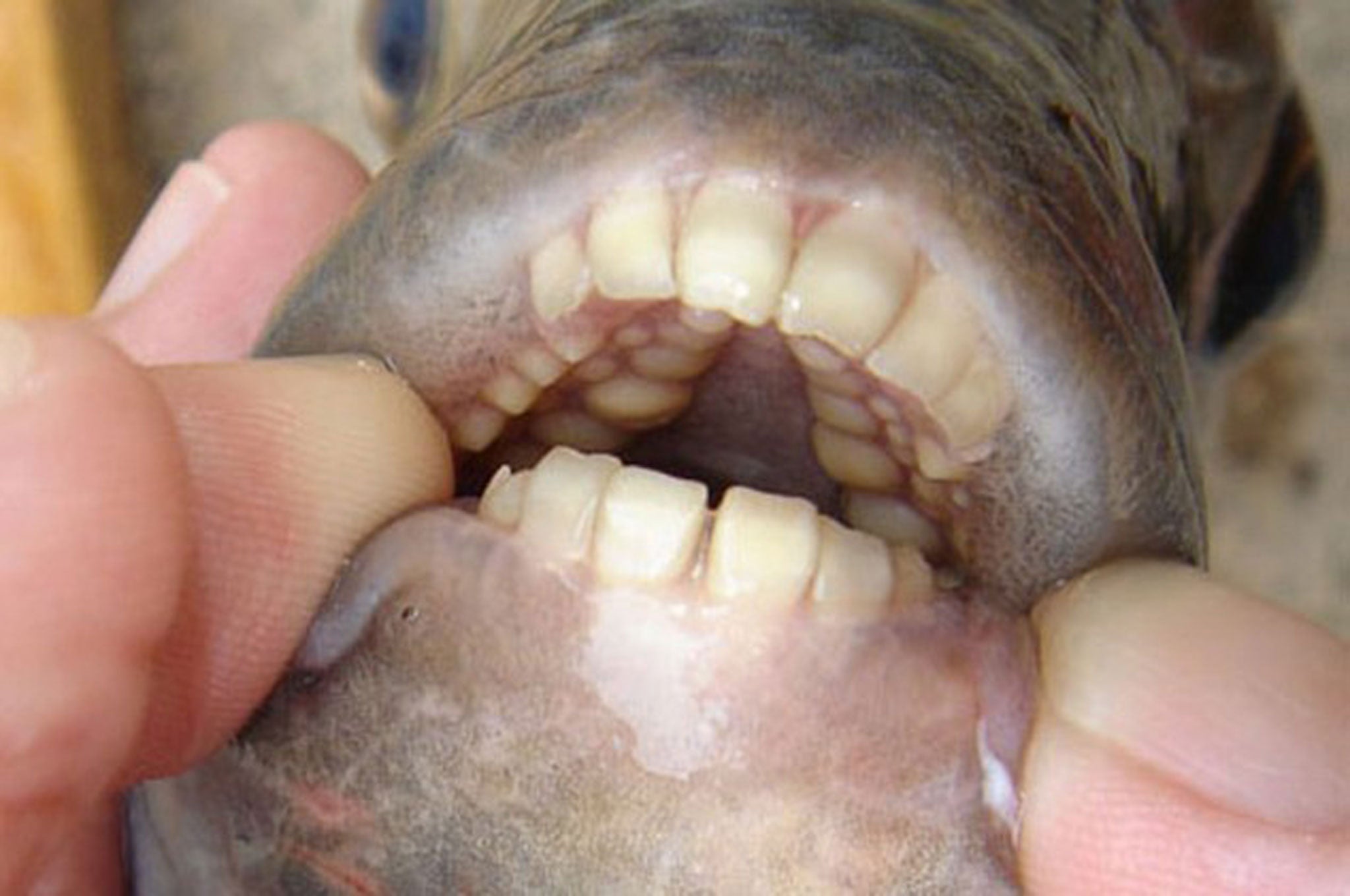Fish with 'human teeth' found swimming in Michigan lakes
They are close relatives of the piranha

Fish with human-like teeth and a reported penchant for chewing on men’s testicles have been found swimming in Michigan lakes.
Several anglers have hauled the odd-looking specimens out of the water, prompting a warning from wildlife experts.
They are pacu fish, close relatives of the piranha - and pet owners release the fast-growing omnivore into the wild because they become too large for aquariums.
But Michigan’s Department of Natural Resources (DNR) said releasing the animals “is almost never humane”.
“Pets released from confined, artificial environments are poorly equipped to fend off predators and may be unable to successfully forage for food or find shelter,” said Nick Popoff, manager of the DNR’s Aquatic Species and Regulatory Affairs Unit.
“Those that do succeed in the wild can spread exotic diseases to native animals. In the worst-case scenario, released animals can thrive and reproduce, upsetting natural ecosystems to the degree that these former pets become invasive species.”
The fish can grow up to 3ft and weigh 55lbs in the wild and have such powerful teeth to help them crunch through nuts, fruit and plants.
Pacu became notorious in 2013 following a warning from a professor at Copenhagen's Museum of Natural History after a Danish fisherman caught one of the large specimens.
Professor Peter Rask Moller said he was 'half-joking' when he said the fish could mistake human testicles for their favourite food of tree nuts.
Afterwards he told CNN: "We did say that we recommend men to keep their swimsuits tied up until we know if there are more pacus out there in our waters. Of course, this is half a joke since it is very unlikely that you would actually meet one here and that it would bite you. It's up to people themselves how careful they want to be. I'll keep my shorts on, though."
Rumours over their testicle-eating habits may originate from Papua New Guinea where the fish are known as ‘Ball Cutters’.
Join our commenting forum
Join thought-provoking conversations, follow other Independent readers and see their replies
Comments
Bookmark popover
Removed from bookmarks